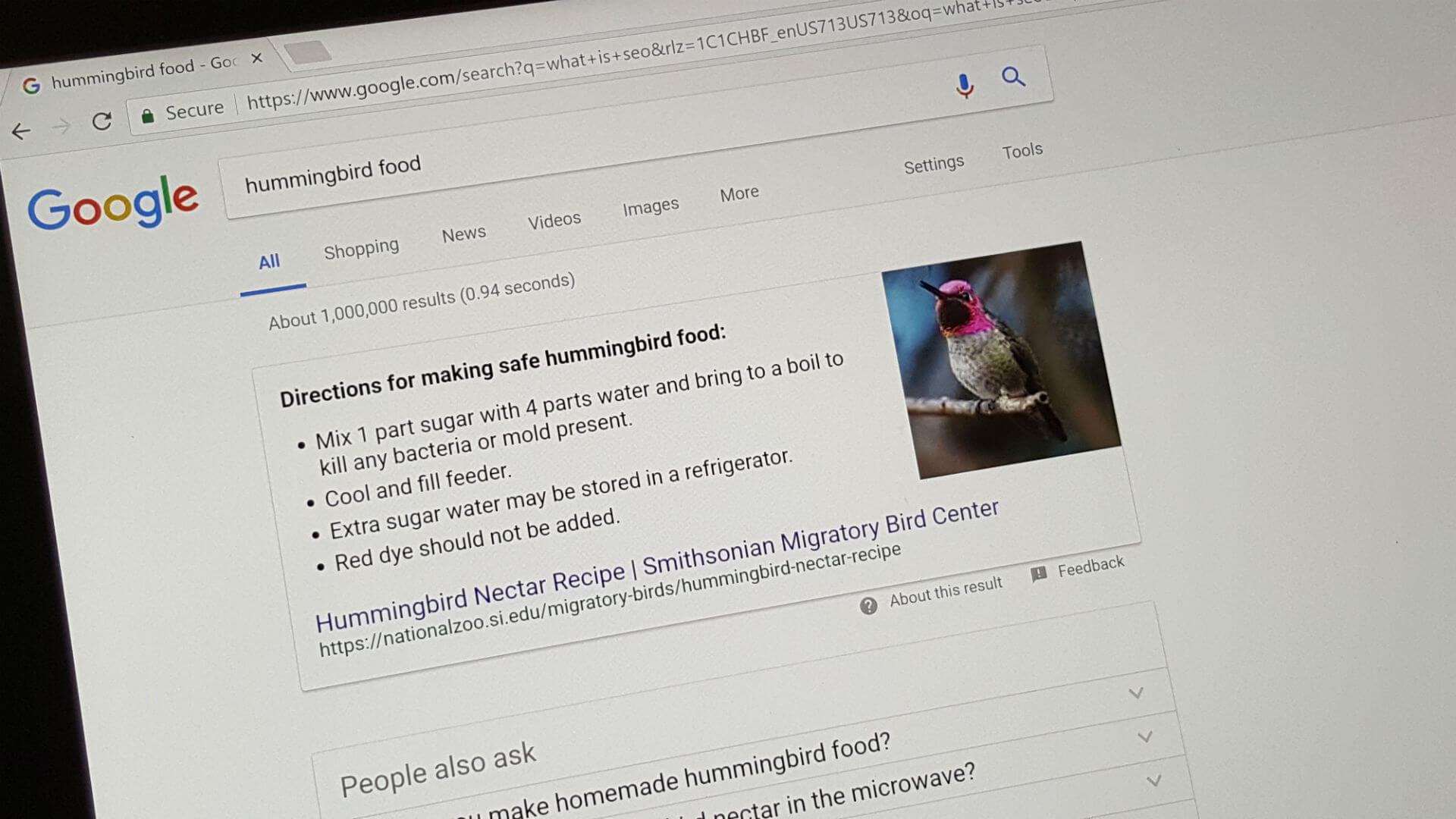Search Engine Land’s daily brief features daily insights, news, tips, and essential bits of wisdom for today’s search marketer. If you would like to read this before the rest of the internet does, sign up here to get it delivered to your inbox daily.
Good morning, Marketers, remember when virtual events weren’t really a thing?
As with much over the past year, that sure has changed. We’re not just saying that because we know first hand what it takes to pivot from an in-person conference organizer to putting on a series of virtual shows. Just look at what SXSW is doing this week, or even how The New Yorker has jumped into the fray, and it’s clear that what it means to be an event is likely forever changed.
But I’m also struck by what Gartner’s Craig Rosenberg told us yesterday during a MarTech session on digital transformation no less: “The first time you do a face-to-face event, everyone will come. We just want to see each other.”
We saw that level of hope when we last fielded our Events Participation Index survey at the start of 2021. At the time, only 20% of the marketers we surveyed said they felt it was unlikely that they would attend an in-person event in the second half of 2021. Now, with vaccinations accelerating, we want to know if confidence has grown even larger.
Please let us know by taking our latest survey here. It is only a few short questions, and your answers can help organizers understand when the right time will be to bring back an in-person conference.
Just like Craig said, we just want to see each other too.
Henry Powderly
VP, Content
Google blocked 3.1 billion ads that violated their policies last year
Google’s annual Ads Safety Report lists misinformation around COVID-19 and the political climate as well as ad fraud as top concerns last year.
COVID-19. The company banned ads related to price gouging of important pandemic-related supplies like masks and hand sanitizer. Their policies included restrictions on ads that promoted false cures and opportunistic abuse of audiences.
Political ad bans. Google also initially banned election-related ads after US polls closed on November 3 through December 10. When the insurrection at the Capitol occurred on January 6, Google again shut down all ads mentioning politics, impeachment, the inauguration, and the insurrection at the US Capitol.
Stopping fraud. To combat fraud and spam ads, Google Ads implemented their advertiser identity and business operations verifications programs. These new programs plus automated detection technology and the human review processes intercepted 968 million violating ads.
Brand safety. Google was also sensitive to brands’ need for control over where their ads displayed as there were increases in hate speech and calls to violence online. The company says they have continued to invest in automated technologies to prevent the monetization of harmful web content.
Why we care. With constant evolution, Google’s Ads Safety Report indicates that it’s evolving its platform and AI to keep up with the ever-changing global situation to help protect both advertisers and users.
Did you get the SharedArrayBuffer warning in Search Console? Here’s what it means
Web-facing pages are an information security battle zone as we fight hackers who try to steal company secrets. Modern web pages often leverage resources from more than one origin (domain). This often leads to vulnerabilities.
As pressure mounts surrounding security concerns that affect new features, webmasters have a growing list of options from browser makers, including directives for handling “cross-origin” resources to help prevent information leaks.
The SharedArrayBuffer warning. CPUs, which are vulnerable to a timing flaw by virtue of Spectre, allow access to a memory cache where SharedArrayBuffers store data. The timing flaw allows a malware-wrought page to race to access memory and all your other pages, not only those pages opened by following a link from one to another, but any page open in your browser.
Why we care. Given that failing security policies already trigger warnings for you in Lighthouse, Search Console, and with error messages in browser consoles, we need to understand details in order to offer our advice for what to do. When we’re involved in web development ourselves, then we want to have specific information prepared so that we can guide or conduct the implementation of a fix as part of our work. Information security plays an important role, as evidenced by SharedArrayBuffers, cookie policy changes, and many more such matters which are likely just out on the horizon.
Video SEO, page load time, and the new Google Ads summary layout
Video SEO: Ranking on Google vs. Ranking on YouTube. Once you’ve put on the finishing touches and have uploaded your video, you need to do more than just cross your fingers and hope it ranks within the search results on Google and YouTube. These video strategy tips ensure your audience is able to find all of your hard work.
How Does Page Load Time Affect Your Conversion Rate? As a consumer, you know how you respond to slow sites. You hit the back button or close the browser. As a business owner, you’re well aware of this. You’re a consumer, too, after all. So, you know page load time and conversion rate are related. But how exactly? How does it affect the bottom line?
Google Ads announces new summary view with simplified layout. The streamlined new summary configuration can help advertisers and small businesses who may be newer to Google Ads. Users can view performance in one place, improve performance with custom recommendations, create and edit campaigns more easily, and manage keywords in one place, according to the announcement.
Wikipedia launches a commercial option for big tech, but how will the community react?
The Wikimedia Foundation announced the launch of Wikimedia Enterprise, a new service designed for the sale and efficient delivery of Wikipedia’s content directly to tech companies like Google (who uses Wikipedia for rich snippets all the time).
Previously, Wikipedia has made a bi-weekly “data dump” of all the information available on the site for tech giants to sort through and upload as they see fit. “[Tech companies] all have teams dedicated to Wikipedia management—big ones,” says Lane Becker, a senior director at the foundation. These teams essentially sort through and manage the data from Wikipedia for these tech companies to consume and use as needed. The paid service the new Wikimedia Enterprise will be selling is this same data but in a format that makes it much easier for big tech to handle. With negotiations already underway, the question now is how the Wikipedia volunteers and community will react to the monetization of the website and service:
“Wikipedia is an extraordinary resource, a cumulative effort over two decades to describe the world, both its long past and its of-the-moment twists and turns. As it’s grown, it’s remained committed to its core noncommercial ideals. Big Tech companies, on the other hand, have proven themselves to be rapacious capitalists—they take as much as they can and ask for permission later. They will imitate a competitor in a heartbeat to gain control of a service they consider valuable. Wikipedia’s decision to enter into an agreement with them and begin an explicit relationship, as opposed to an unspoken one, carries the risk that the commercial world’s values—as well as its ample rewards—could come to dominate.”
Contributing authors are invited to create content for Search Engine Land and are chosen for their expertise and contribution to the search community. Our contributors work under the oversight of the editorial staff and contributions are checked for quality and relevance to our readers. The opinions they express are their own.



